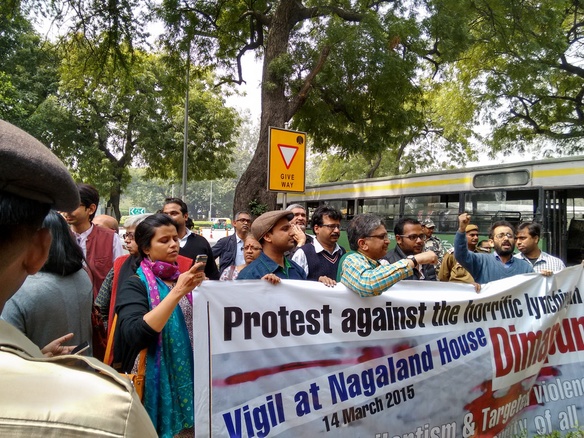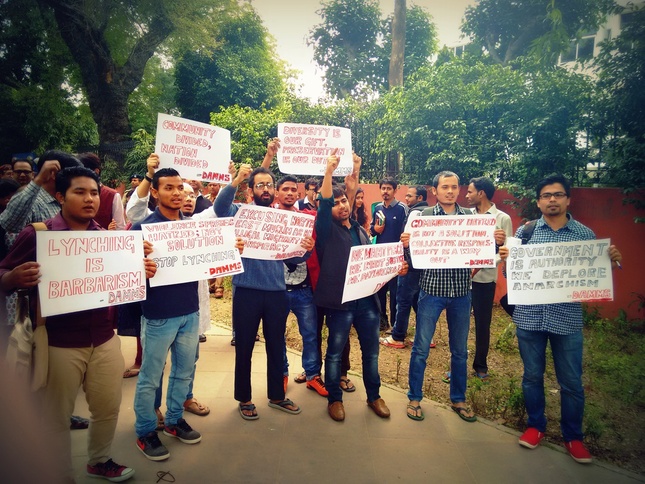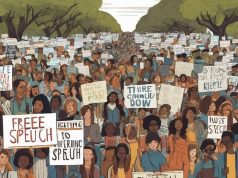New Delhi: Civil society groups organized a joint protest outside the Nagaland House in the national capital on March 14, 2015 condemning last week’s lynching of a rape accused by a mob in Dimapur. Protesters later submitted a memorandum to the Governor of Nagaland through the Resident Commissioner.
The joint protest was organized by the Jamia Teachers’ Solidarity Association (JTSA), Jamia Students Solidarity Forum (JSSF) and ANAHD, and was supported by Association for Protection of Civil Rights (APCR) and several human rights activists and groups.
In the memo submitted to the Governor, protesters demanded a judicial probe, including an impartial investigation into the complaint of rape, into the chain of events that culminated in the public lynching, adding that the perpetrators of the violence should be identified and prosecuted. The jail and local civil administration must be held accountable for the fatal lapses which led to the killing, they asserted.
Protesters also demanded that adequate compensation should be paid to the family of the deceased man.
protesters demanded a judicial probe, including an impartial investigation into the complaint of rape, into the chain of events that culminated in the public lynching, adding that the perpetrators of the violence should be identified and prosecuted.
Kashif Ahmed Faraz, Assistant National Coordinator of APCR, remarked that violence in the name of illegal Bangladeshi immigrants is an old propaganda and it has escalated day by day for demographic change and political gain. There have been a number of cases of targeted violence like Nellie Massacre of 1983, which caused hundreds of deaths and displaced millions of people. APCR strongly condemned the Nagaland lynching, where a mob broke into the Dimapur Jail, dragged a rape accused out, stripped him naked and beat him to death. This incident has also brought to the fore the total apathy and failure of the state machinery in the region.
Nandini Rao commented the Nagaland lynching episode had more to do with patriarchal power than gender justice. “It goes on to reaffirm the deeply-held patriarchal notion that women are the property of a community and it is for the men to “safeguard’ this property. The fact that the Naga accomplice of the rape accused wasn’t harmed by the mob only shows that the real threat to the community wasn’t the alleged rape as much as the ‘’audacity’’ of the ‘’Bangladeshi’’ other to lay claim on the body of a Naga woman. This is nothing but a disservice to the rape complainant,” the statement said.
Tanveez Fazal of Jamia Teachers Solidarity Associations (JTSA) pointed out the “negative impact” that the incident could have, including increased communal-ethnic tension and hatred towards the Muslim minorities of the region, who are more than often profiled as Bangladeshi immigrants.
Manisha Sethi, JTSA, said an incident like this stigmatized minorities within minorities in the country and further paved the ground for the already prevailing violence against them. As advocates for gender equality and sexuality rights, we strongly condemn such violence that pushes the agenda of human rights and gender justice into a misguided cycle of violence, incapable of producing justice as it is desired, she said.
Criticising the media, Shabnam Hashmi of ANHAD said it was indeed sad to see the callous and insensible reporting that adds on to these instances of heightened tension and chaos in times of conflict. Rape and gender violence is systemic in nature and one needs to understand the underlying nuances instead of looking into the same in isolation, she said.






